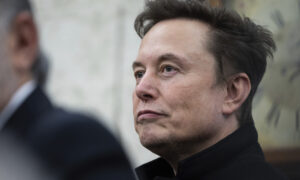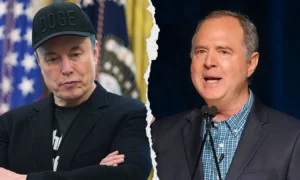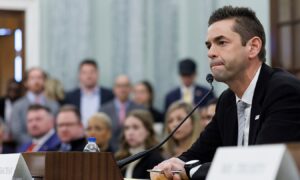There is a growing web of interconnected legal problems for Donald Trump.
The decisions he makes in one case have repercussions in others. Trials could potentially clash with one another. It is possible that a lawyer defending Trump in one set of charges may testify against him in another.
Due to the inherent inefficiencies of trying so many criminal and civil cases in so many different places, some degree of overlap is unavoidable. On the other hand, Trump may have helped his legal opponents by creating these ties.
The opportunities presented by Trump’s indictments and civil proceedings, according to Temidayo Aganga-Williams, a former federal prosecutor of the Brooklyn U.S. attorney’s office, are likely to be welcomed by prosecutors.
“I would look at this as an opportunity,” said Aganga-Williams, who was also senior investigative counsel for the House select committee on January 6. “There’s always opportunity for expanding your base of evidence when a defendant is facing multiple cases, especially in multiple jurisdictions.”
Take the recent controversy surrounding Trump’s videotaped deposition in writer E. Jean Carroll’s rape and defamation case.
Parts of that deposition were utilised as evidence in the trial (which the jury ultimately decided in favour of Carroll) and released to the public on May 5. The nation’s cable-news hosts and pundits were riveted by Trump’s responses to questions about Carroll’s allegations.
However, they weren’t the only ones looking on.
Prosecutors in the office of the Manhattan district attorney, who earlier this year launched the first-ever criminal charges against Trump, also saw the deposition excerpts across the street from the courthouse where the trial took place. Ten days later, they subpoenaed Carroll’s attorney in an effort to obtain the unreleased portions of the deposition, arguing in court filings that the full scope of his comments is relevant to their case in which Trump is accused of falsifying business records to help cover up an affair with a porn star.
A judge determined Thursday that the law firm can respond to the subpoena.
Over the following year, Trump will have to attend a number of court dates while still campaigning for reelection to the presidency. Between October 2023 and May 2024, he will face five trials: one in Manhattan state court, one in federal court, one in New York state court for civil fraud, and two in federal court. Later this month, he will face trial for the sixth time on an indictment for attempting to void the 2020 election. And it’s possible that he’ll be hit with even more charges in the near future in Fulton County, Georgia.
Given the vast number of events (legal filings, discovery production, court appearances) that must take place within a finite period of time, scheduling in one issue is likely to affect scheduling in another.
Trump’s legal and extralegal moves in certain areas have already prompted action in others.
As the Manhattan indictment approached earlier this year, for instance, Trump urged his followers to demonstrate. Judge supervising the Carroll lawsuit ruled that the jurors remain anonymous, with their identities concealed from even the plaintiff and defence counsel, in part due to Trump’s reaction to the potential of indictment.
Because of Trump’s actions in light of the impending indictment, U.S. District Judge Lewis Kaplan said in his ruling that “a very strong risk that jurors will fear harassment” if the Carroll trial went forward.
Prosecutors in the Manhattan criminal case later sought a protective order from the presiding judge to prevent some evidence from being made public. They made reference to Trump’s civil case against his former lawyer Michael Cohen and the government inquiry into his handling of secret documents (for which he has since been arrested).
They told the judge that the probe “gives rise to significant concern that Defendant will similarly misuse grand jury and other sensitive materials here.” They also claimed that Trump’s lawsuit against Cohen (a key witness in the Manhattan case) “heightens the risk” that Trump may use the private information “for purposes other than a defence in this case,” implying that Trump might use them against Cohen.
In a roundabout way, the prosecutors also argued that the judge in the Carroll trial had taken the usual step of ordering that the jury be kept anonymous in order to support their position that the protective order should delay the disclosure of the identities of certain district attorney’s office personnel.
A protection order was granted by the court in charge of the Manhattan criminal case, barring Trump from making certain discovery materials public and restricting his access to others.
Trump appears to have tried to take advantage of schedule conflicts in some of his cases.
A federal class action plaintiff group sued Trump and his corporation in March for allegedly promoting a pyramid scheme, and the plaintiffs’ attorneys contacted the judges in both their case and the civil fraud complaint brought against Trump by the New York attorney general. The attorneys speculated that Trump had recommended a trial date in the attorney general’s lawsuit that would overlap with the trial date in the class action case on purpose.
The class action trial is still slated for January 2024, while the trial in the attorney general’s case has been set for this October.
Due of Trump’s legal tangle, there are now certain peculiar circumstances in which members of Trump’s inner circle play different roles in different instances. On Thursday, Trump was arraigned in court for his role in the election meddling case, and his attorney, Evan Corcoran, was there to represent him. Corcoran, though, might serve as a witness in the case involving the secret documents. The indictment in that case appears to hinge on notes he took in which he recorded Trump’s advice that he keep secret documents from investigators. He testified before the grand jury in that case.
In the Georgia investigation, a grand jury is expected to consider charging Trump and allies for efforts to subvert the 2020 election in that state this month, making it possible that Trump could face four concurrent indictments in four different jurisdictions.
Former Trump critic Michael Avenatti was first hit with three federal indictments in two different jurisdictions, but then had his California trial split in two by the judge. Avenatti was found guilty in two separate trials in New York and admitted guilt in a third. The remaining charges against him were dismissed by the Department of Justice.
The former federal prosecutor Aganga-Williams said that Trump “has the most peril when the cases are overlapping in criminal conduct,” citing the Georgia investigation and the federal election-interference case as examples.
Prosecutors in those areas are more aware of developments in other countries, according to Aganga-Williams.
The legal team representing Trump has unique obstacles due to their client’s outspokenness and the fact that he is running for federal office. “you have to be conscious of what the client might say that could rebound to the client’s detriment down the road,” said Jonathan Entin, a law professor at Case Western Reserve University.
It is “the challenge for a lawyer to see whether the candidate will not say things on the stump that either jeopardise his legal position or might rub the judge the wrong way when the judge has to make some sort of discretionary rulings,” as Entin put it, referring to Trump’s legal woes as he campaigns for president.
The lawyer is in a tough spot since he or she can’t simply tell the client to keep quiet for the next six months to a year.









